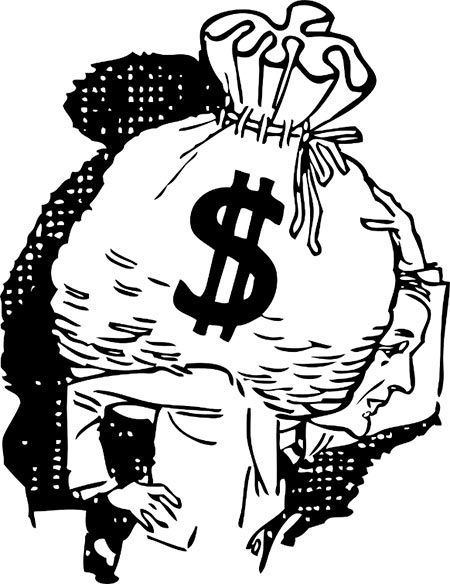Give your opinion
Capitalism: Privilege or Freedom?

Iván Sánchez, student of the Degree in Philosophy, Politics and Economics (PPE) of the School of Philosophy y Letras, presents his latest article. This time, he offers us an interesting reflection on the challenges facing capitalism today.

Poverty, inequality, pollution... These are just some of the ills of our society today. Their causes are undoubtedly diverse, but it is increasingly common to find a common enemy: capitalism. In fact, it has become quite common to see on the networks, read in the newspapers or hear in the news that capitalism is to blame for many of our ills, and even that "capitalism is the worst possible economic system "1.
However, behind such harsh statements against capitalism lies a great ambiguity about what this system, which is being attacked from so many sides at the same time and in so many different ways, is and what it consists of. The most common definition of what is meant by capitalism is: a system of production based on private ownership of the means of production. However, this definition is problematic because it accommodates two possible definitions of capitalism that are very different from each other.
On the one hand, this definition of capitalism is compatible with a system with private means of production in which the large owners of these means of production receive privileges from rulers, legislators and regulators when carrying out their economic activity. In this way, large companies would have laws and measures in their favour - special tax reductions, exclusive licences or reduced competition - which would give them a more advantageous market position than their competitors.
We need to see how dangerous and damaging this conception of capitalism is. First of all, it produces greater inequality, as the owners of large privileged companies make higher profits at the expense of the unprivileged. This systematically generates a social division between the class that benefits from privileges and the class that has to pay for those privileges, and this is exacerbated over time.
Secondly, this system results in increased market rigidity. The privilege system prevents the emergence of new firms that produce better products or at a cheaper price than the privileged firms. This is so, on the one hand, because the privileged firms have benefits that prevent new firms from being able to compete with them, and on the other hand, because competition is sometimes directly restricted or even prohibited (by means of licences, exclusive rights, etc.).
In this way, it can happen that different economic sectors are governed by business monopolies or oligopolies. Privileged companies do not have to worry about the emergence of competitors and can afford to be grossly inefficient and, above all, oblivious to customer demands. At the same time, the emergence of new firms that better meet consumer needs is made impossible.
Thirdly, this system entails perverse incentives that distort economic activity. This is because the benefits of state privileges can be more profitable than those obtained by operating in the market. In this way, it is not difficult to conceive of companies orienting their activity in search of ways to obtain greater privileges and largely forgetting about customer demand.
Once this notion has been analysed, it is not hard to see how capitalism is criticised, especially insofar as this conception has been embodied in our current system. If by capitalism we mean a system that discriminates between the privileged and the non-privileged, a system that benefits an elite over small landowners, that turns away from the needs of the people in the search for more privilege and money, we can only oppose it head-on and fight to ensure that it no longer has a place in our societies.
However, with the above definition of capitalism (private ownership of the means of production) a more comprehensible concept of capitalism is also compatible. This definition consists of a system that is not only based on private ownership of the means of production, but also on the free market.
In this way, profitable companies will be those that have a competitive advantage over the rest - which is simply a better way of meeting customer needs - and will only maintain their position of relevance in the market as long as they continue to be the ones that best meet those needs.
This second idea of capitalism - as a system of private ownership of the means of production and free markets - is not only more defensible, but also more desirable. At final, as opposed to a system based on pure clientelism and cronyism, we must move towards a system that is based on better serving the wishes of others, in which profit is not obtained from favours to this or that politician, but from having found a way to meet the needs of the people in the best and most efficient way possible.
1 The Real Reason Why Capitalism is the Worst Economic System.
References
Lacalle, D. (2020). Libertad o igualdad ( 2nd ed.). Barcelona: Deusto.
Von Mises, L. (2019) The Anti-Capitalist Mentality (5th ed.). Union publishing house. (Original book published in 1956).
If you liked the article, you might be interested in one of our Degrees!









